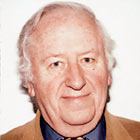"Spiral of Violence," Dom Helder Camara
On the 10th anniversary of his death, Brazil remembers a champion of the poor who fought the forces of conservatism
"In the Father's house we shall meet Buddhists and Jews, Muslims and Protestants – even a few Catholics too, I dare say ... We should be more humble about people who, even if they have never heard of the name of Jesus Christ, may well be more Christian than we are."
These are the words of Helder Câmara, one of the most distinguished Catholic churchmen of the last century, an archbishop of the miserably poor Brazilian diocese of Olinda and Recife, the 10th anniversary of whose death is being recalled during this fabulous year for Brazil.
Brazil, with its leader Inácio Lula da Silva, has experienced immense success in recent months: the Olympic games will find their home in Rio in 2016 not long after the world's footballers quit at the end of the World Cup; Brazil has crashed its way into the Group of 20 leading economic powers having severely mauled the World Bank and the International Monetary Fund; Lula and his diplomats are taking the lead in tightening the screws on the group of military-backed impostors who seized power earlier in the year in Honduras while the Lula himself is leading a group of South American governments in trying to restrain President Álvaro Uribe of Colombia from militarising with the aid of foreign troops a region which is supposed to be a zone of peace free of nuclear weapons.
Amid all this frenetic international activity on so many fronts it is pleasing to note that the figure one of Brazil's outstanding Christians, a prophet of and forerunner of many 21st century attitudes – from the environmental movement to greater co-operation among poorer countries – is being remembered on the anniversary of his death in 1999.
Câmara, archbishop in the poverty-stricken north-east of the country from 1964 to 1985, during the most vicious period of western-supported military dictatorship, was a spiritual giant, and like most of his ilk a complicated human being. Born to an accountant and a freemason and his primary school teacher wife, he certainly was the only senior Catholic prelate to have been named after a Dutch naval base on the North Sea. (The parents had already lost six of their thirteen children, wanted some name which would not bring bad luck and picked the name at random from a school atlas.) For much of his early life he was a firm supporter ofIntegralism, a Brazilian form of fascism much favoured by some Brazilian clerics. Preparations for the Second Vatican Council in the late 1950s made him realise the precariousness of the life of Brazil's poor.
At the end of a long talk with him once in Olinda at the time when the Norwegians were about to decide who was to receive the year's Nobel peace prize, which his supporters were keenly lobbying for him to receive I came away with mixed emotions. He was clearly a paragon of virtue and bravery having been attacked by conservatives at home and indeed in the depths of the Vatican. Yet I found it difficult to accept some of his opinions which found unbearably naive. And I was not expecting his last remark to me: "Remind me which Norwegian newspaper you write for."
But there was no gainsaying his greatness and his life and works are being worthily commemorated in a simple and handy new book by Francis McDonagh of the British aid agency Cafod. Dom Helder Camara: Essential Writings has been brought out by Orbis Books, a US publisher, and will remind the world that there is more to Brazil than football, athletics, samba and clever diplomacy.
The late archbishop's place in history will be heavily influenced by one of his more memorable sayings. "When I feed the poor they call me a saint. When I ask why so many people are poor they call me a communist."
That is the sort of quotation that Lula must be thinking he should have made.
Hugh O'Shaughnessy's latest book "The Priest of Paraguay: Fernando Lugo and the Making of a Nation" has just been published by Zed Books.



No comments:
Post a Comment